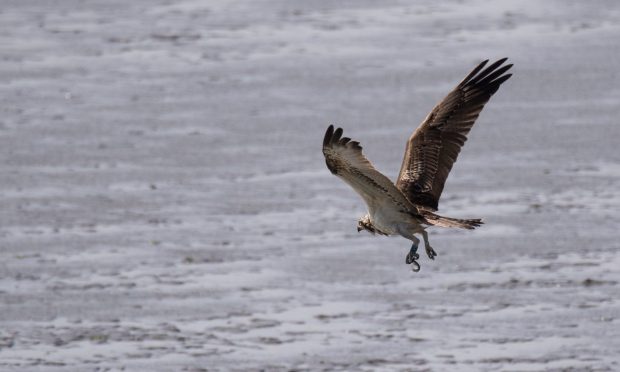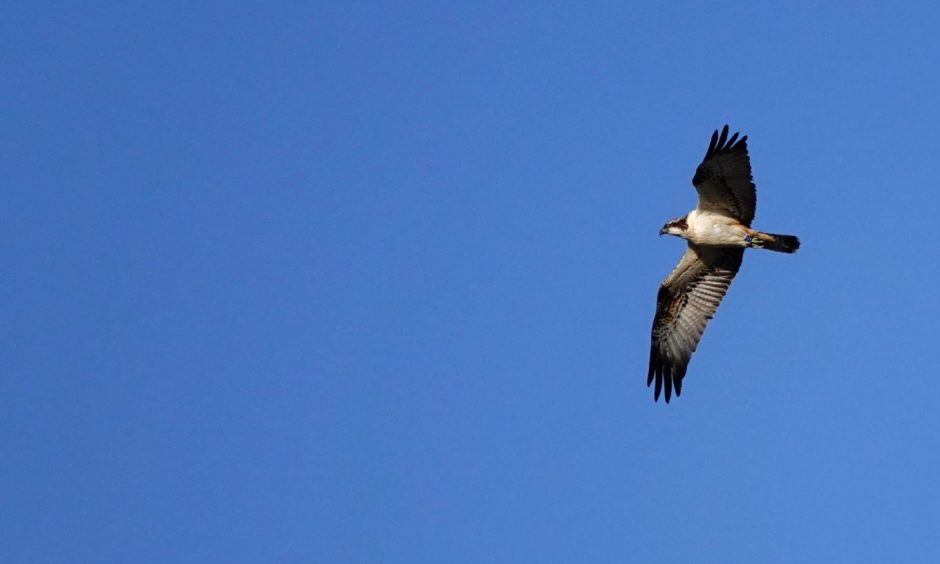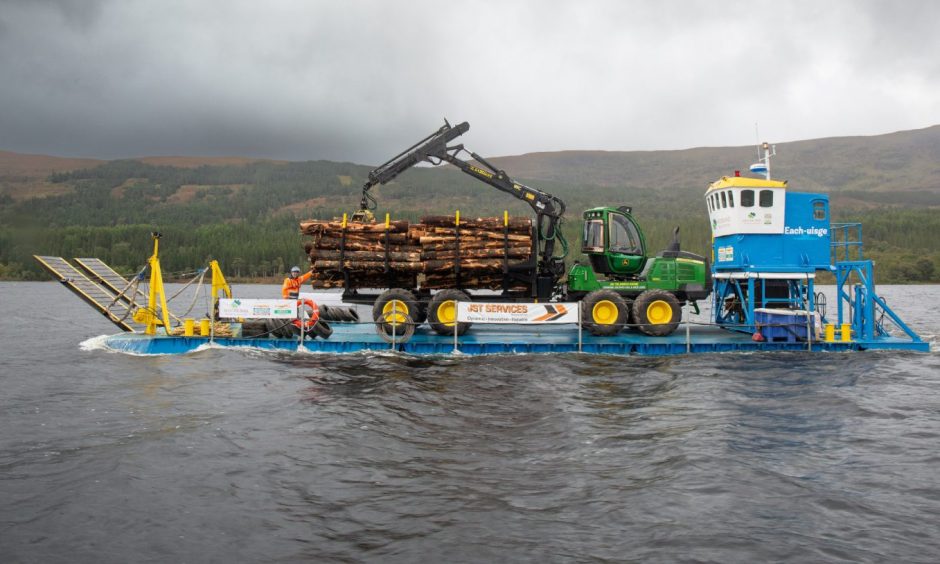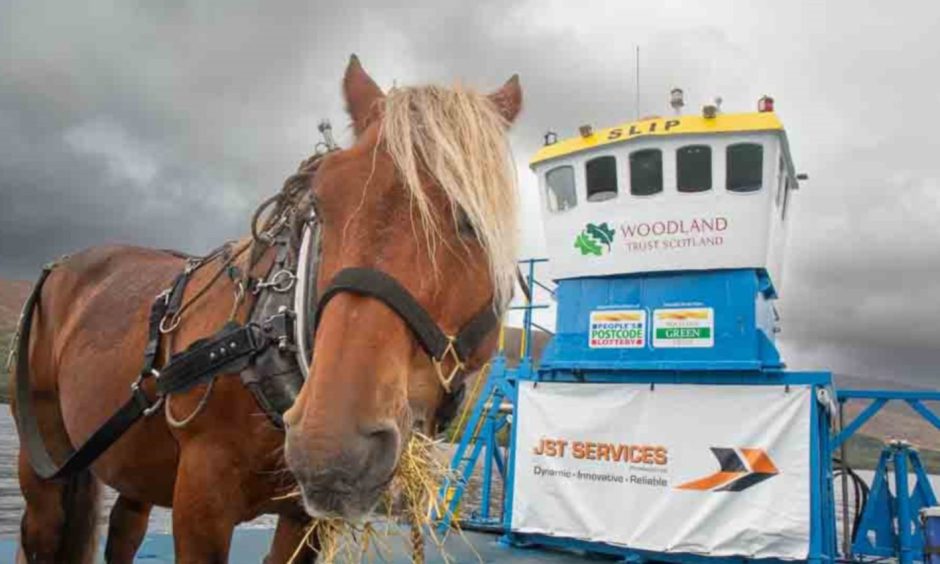A Scottish visitor is causing a flap in France after stopping off for a spot of fishing.
Ludo the osprey, who was raised at the Loch Arkaig pine forest in Lochaber, has been spotted by birdwatchers hunting at the Bay of St Brieuc National Park in Brittany.
The bird, identifiable by its tag number LY7, was the only chick raised on the Loch Arkaig camera nest this year.
One egg was knocked out of the nest in an owl attack, while a third proved infertile.
Ospreys winter in Africa
Ludo, whose name comes from a combination of his parents’ – Louis and Dorcha – took his first flight on July 19 and was last seen at Loch Arkaig on August 25.
Most Scottish ospreys overwinter in West African countries such as Senegal, although in recent years some have been seen settling in Spain and Portugal.
Ludo’s Brittany break may last another couple of weeks before he continues his journey south.
Loch Arkaig pine forest was bought by Woodland Trust Scotland (WTS) and local group Arkaig Community Forest in 2016.
Funding raised by players of the People’s Postcode Lottery contributed to buying the site and its ongoing restoration.
It was known as a training base for British Commandos and Allied Special Forces during the Second World War.
The loch was also a filming location for a sequence in Harry Potter and the Deathly Hallows.
WTS has operated a livestreaming nest camera following osprey family life at the forest since 2017, with support from the People’s Postcode Lottery.
Ludo finds a favoured spot in France
George Anderson from WTS, said: “Young ospreys are not taught by their parents to fish.
“The family splits up to migrate south separately and the young birds have to work things out for themselves as they go.
“Very often they will stop off for a few weeks somewhere the fishing is good and hone their skills.
“Ludo has found his favoured spot in France. Local birdwatchers have been observing him fishing in the bay and have been posting about him on French language forums online.”
One of the livestream fans posted on Facebook said: “This has made my day!! So happy to know our boy is doing okay.”
In 2020, the Loch Arkaig osprey camera became a huge lockdown hit and clocked up an audience of 400,000 worldwide.
The pine forest contains rare fragments of ancient Caledonian pinewood and Scotland’s rainforest.
The restoration of the woodland habitats is helping to underpin sustainable rural development in nearby communities.
Huge amounts of non-native timber are being removed from the forest to allow native pines repopulate the site with their offspring.
This is being done using both traditional and modern methods.
‘Water horse’ helping restore native woodland
Logging horse Tarzan is commuting to work aboard a new barge whose Gaelic name Each-Uisge translates as “water horse.”
Mature non-native conifers, planted in the 1960s, are crowding out the remaining pines and other native trees.
A total of 70,000 tonnes of mainly Sitka spruce and lodgepole pine is being removed over five years.
Part of the forest, known as The Gusach, is so remote that the only practical way to reach it is over the loch.
It is thought the custom-built 21m long, 55 tonne modular barge is a UK first for timber transport over freshwater.
WTS hopes to ultimately power the vessel on an EV charger like an electric car – which will be a world first.
The Arkaig barge is being monitored by the wider forestry sector and could be a game-changer in extracting timber in future.
Estate manager Henry Dobson of WTS, said the remoteness of The Gusach has been a huge challenge.
“Building a track in would have destroyed a lot of the special habitats we are here to restore in the first place
“So, we decided that the only acceptable route was over the loch itself.”
Laura Chow, head of charities at People’s Postcode Lottery, added: “It has taken considerable ingenuity to clear the non-native conifers, of which the barge is a great example.”
Felling will not disturb wildlife
WTS contracts Tarzan and his handler Simon Daken of Blue Green Conservation as part of the timber extraction effort at Loch Arkaig.
A horse is still the best solution in some situations where the ground is particularly steep or there are sensitive natural features.
Felling on the site is taking place over winter to avoid disturbing nesting birds and other wildlife during the breeding season.
The forest is home to native species including red deer, ospreys, sea eagles, pine martens and red squirrels.
Arkaig Community Forest has created jobs from a tree nursery, growing locally sourced native trees such as Scots pine, oak, birch, aspen and rowan.
It has also set up a deer larder supplying venison for local consumption.




Conversation